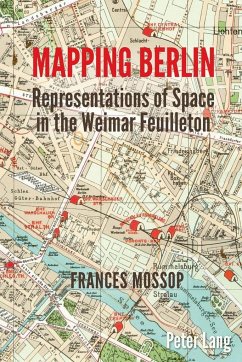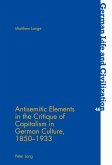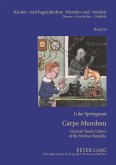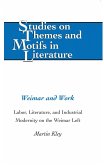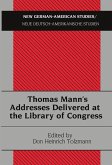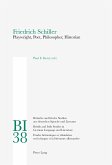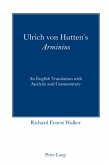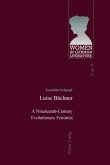This book was the winner of the 2013 Peter Lang Young Scholars Competition in German Studies.
The Weimar period (1919-1933) generated an immense wealth of writings that recorded impressions of daily life in the German capital of Berlin. Literary journalism, in particular, experienced a surge in popularity at the time and played a vital role in informing the public about the 'new world' that was emerging after the First World War.
This book offers an original approach to the German feuilleton of the 1920s and early 1930s by exploring how authors engaged with the space of Berlin on the page. Drawing on recent spatial theory, the author focuses on the role of geography and cartography in the journalistic oeuvres of Joseph Roth, Gabriele Tergit and Kurt Tucholsky. Central to this study is an interdisciplinary and comparative approach to the examination of their feuilleton articles by foregrounding spatiality within the context of literary analysis. The book demonstrates how Roth, Tergit and Tucholsky depict contemporary concerns through spatial representation, thus yielding new insights into the authors' narration of the history, society and politics of the Weimar Republic.
The Weimar period (1919-1933) generated an immense wealth of writings that recorded impressions of daily life in the German capital of Berlin. Literary journalism, in particular, experienced a surge in popularity at the time and played a vital role in informing the public about the 'new world' that was emerging after the First World War.
This book offers an original approach to the German feuilleton of the 1920s and early 1930s by exploring how authors engaged with the space of Berlin on the page. Drawing on recent spatial theory, the author focuses on the role of geography and cartography in the journalistic oeuvres of Joseph Roth, Gabriele Tergit and Kurt Tucholsky. Central to this study is an interdisciplinary and comparative approach to the examination of their feuilleton articles by foregrounding spatiality within the context of literary analysis. The book demonstrates how Roth, Tergit and Tucholsky depict contemporary concerns through spatial representation, thus yielding new insights into the authors' narration of the history, society and politics of the Weimar Republic.

